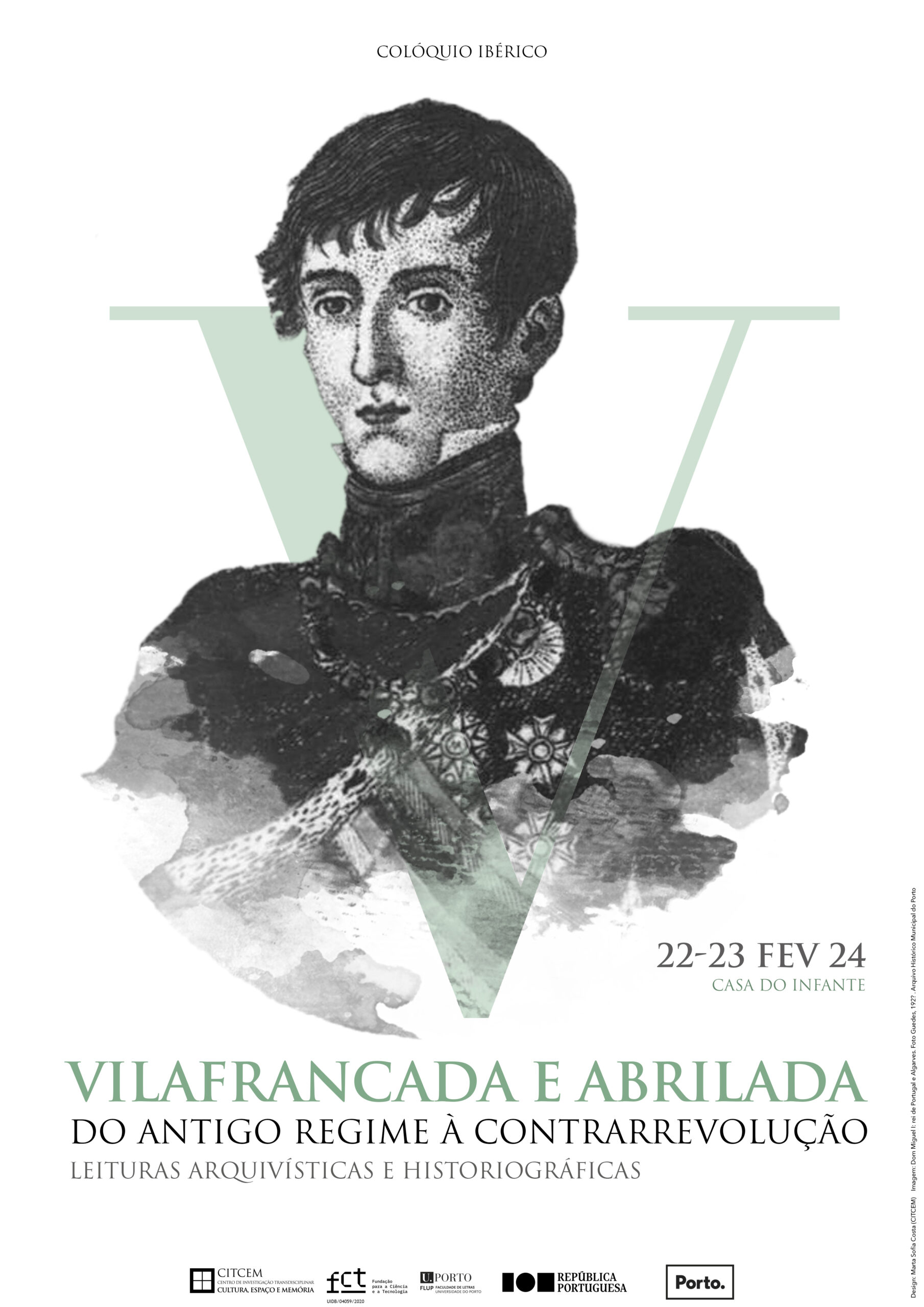News
Iberian Colloquium Vilafrancada and Abrilada: from the Old Regime to the counter-revolution. Archival and historiographical readings
This colloquium arises from the awareness that there is a need to revisit and debate, with full scientific freedom, what the political, ideological, military and conceptual phenomena of the Vilafrancada and Abrilada were, in factual reality and historiographical interpretations. Two hundred years on from such momentous events, it must be acknowledged that the respective state of the art in historiography and archives has yet to be completed, particularly in view of what has been published in recent decades and the documentation known and yet to be inventoried.
In Portugal, the years 1823 to 1824 were the imperfect crossroads between a long-lasting Ancien Régime and an emerging, cyclical counter-revolution, with the first insurrectionary movements in the face of Vintism, born on August 24, 1820. In this sense, the Vilafrancada and the Abrilada are two specific historical moments that mark both the end of the Vintista triennium (on May 27, 1823) and a first, failed attempt to consolidate the Old Regime (on April 30, 1824). At the same time, following both political-institutional cycles, there were interesting and diverse promises and projects for constitutional texts, anticipating, in a way, both in 1823 and 1824, the granting of the Constitutional Charter of 1826. Finally, in the Abrilada, as is well known, in the name of the security of the king and the institutions in force, the political moderatism of the just means was broken and a rehearsal was sketched of what in the regency and reign of King Miguel would be the repressive anti-liberal system in force.
The national microcosm replicates the struggle between the republican Jacobinism of French import, the moderate gradualism of a political center, both liberal and royalist, and the so-called apostolic ultra-realism, above all Franco-Spanish.
With these themes in mind, the dialog between historiography and archives cannot fail to be fostered and deepened: it is in this cyclical back and forth that science progresses, innovation is nurtured and both socio-professional areas are mutually enriched.
The study of political, military and diplomatic events, biographical and prosopographical analysis, institutions, archival heritage and historiographical discourse are some of the topics to be analyzed.
Dates: February 22 and 23, 2024, Casa do Infante (Municipal Historical Archive Division)
Organization: CITCEM-UP and Porto City Council

